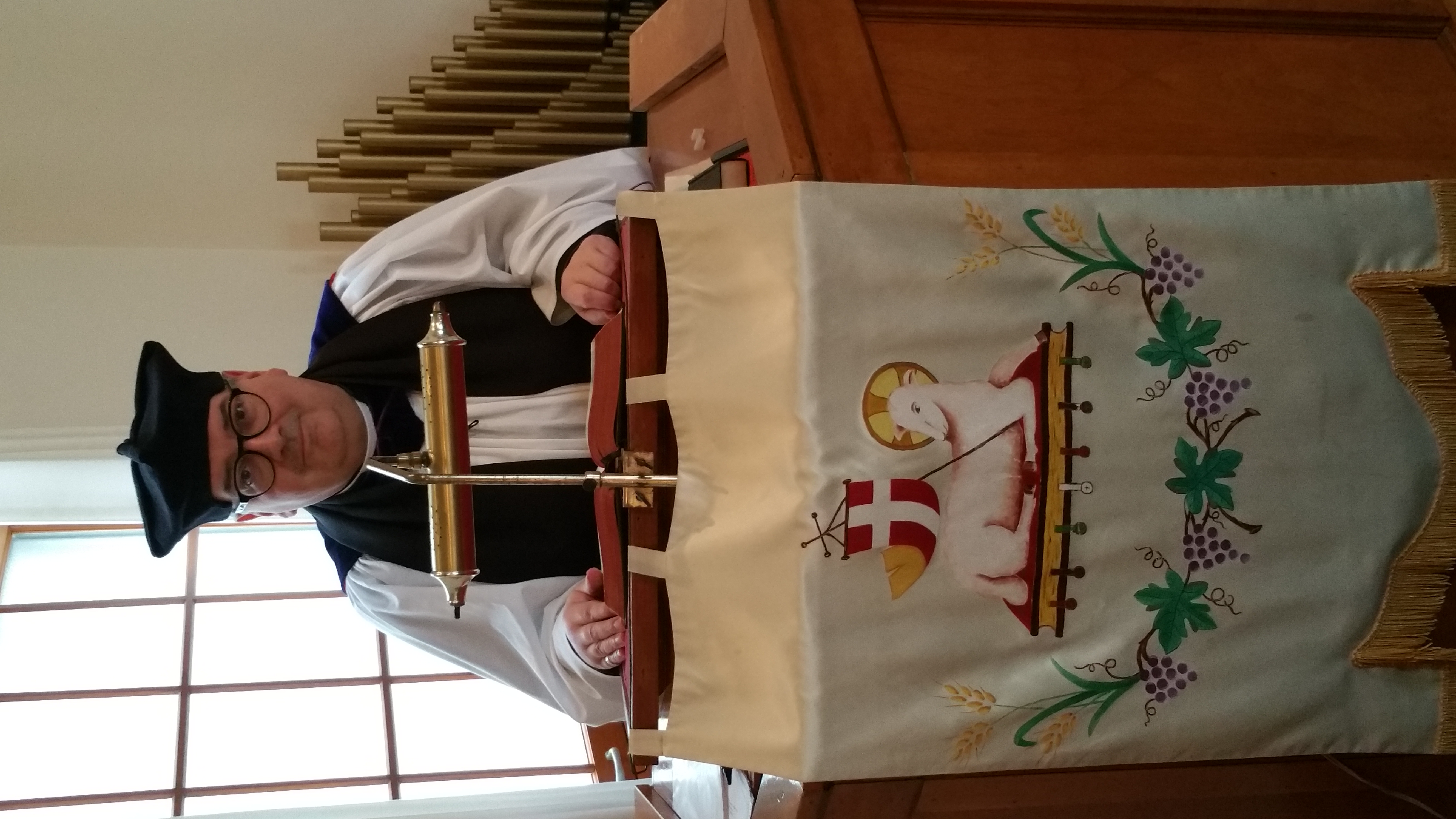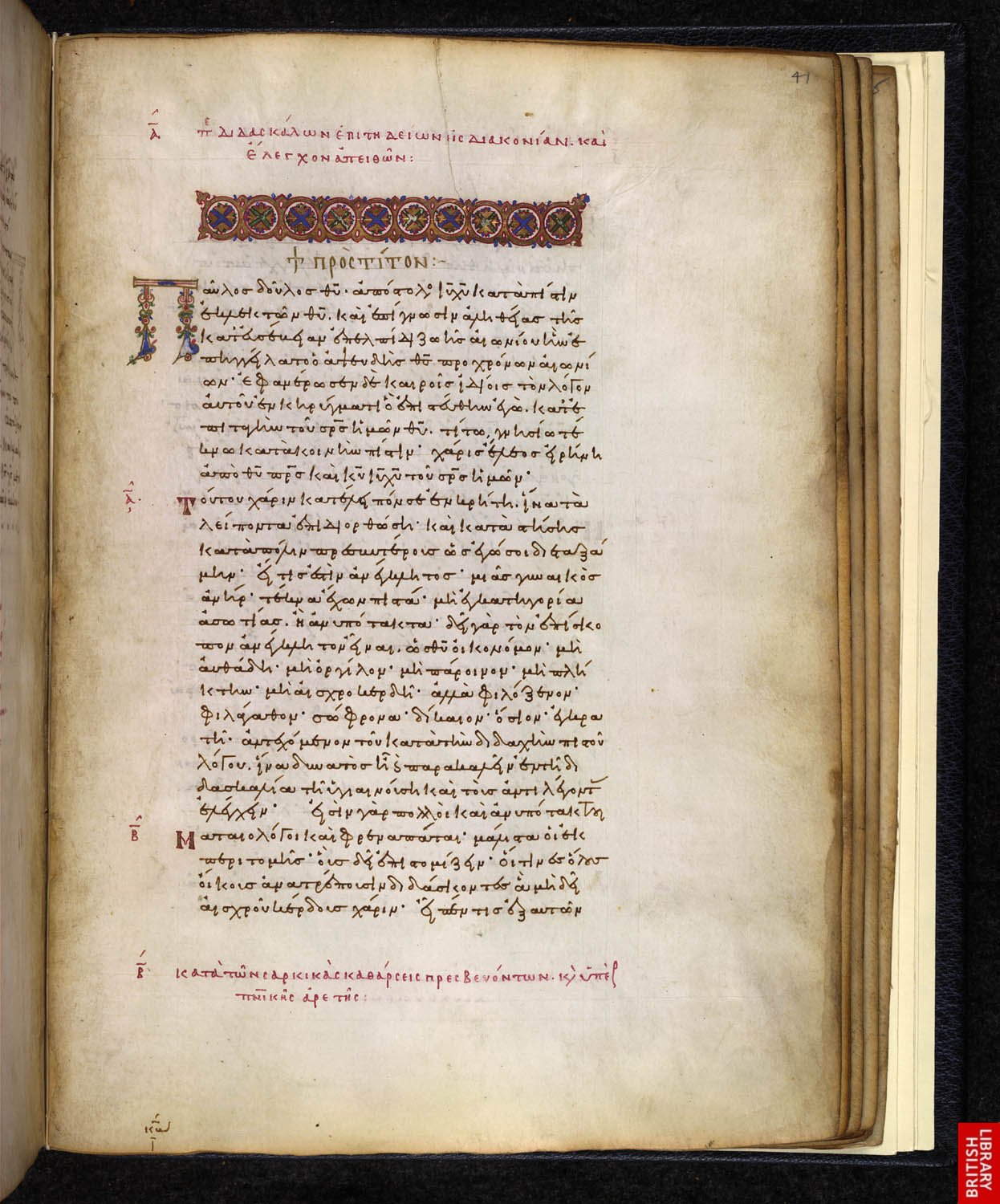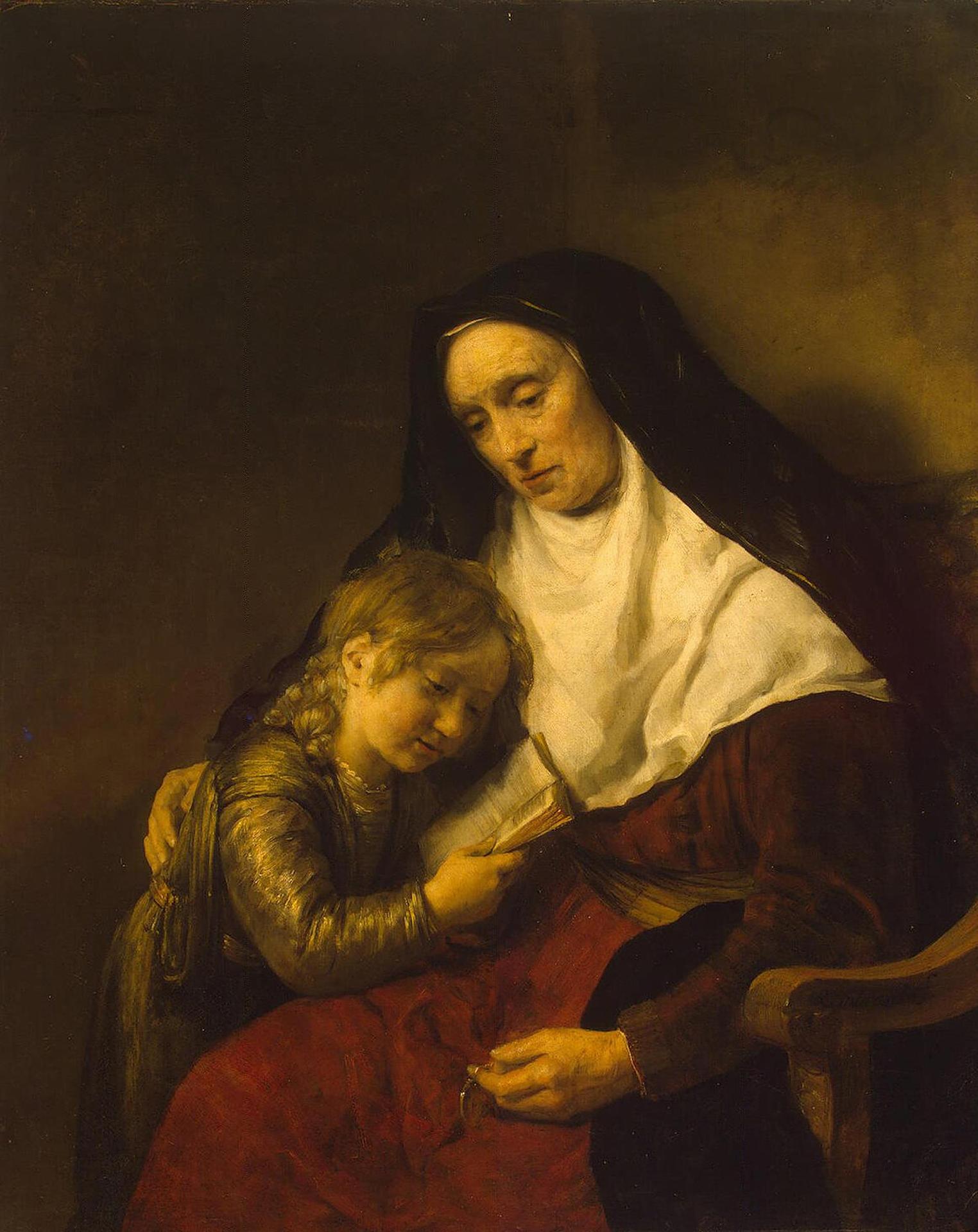|
Presbyters
Presbyter () is an honorific title for Christian clergy. The word derives from the Greek ''presbyteros,'' which means elder or senior, although many in the Christian antiquity would understand ''presbyteros'' to refer to the bishop functioning as overseer. The word Presbyter is also mentioned in the New Testament. In modern Catholic and Orthodox usage, ''presbyter'' is distinct from ''bishop'' and synonymous with ''priest''. In predominant Protestant usage, ''presbyter'' does not refer to a member of a distinctive priesthood called ''priests,'' but rather to a minister, pastor, or elder. Etymology The word ''presbyter'' etymologically derives from Greek ''πρεσβύτερος'' (''presbyteros''), the comparative form of ''πρέσβυς'' (''presbys''), "old man". However, while the English word priest has presbyter as the etymological origin, the distinctive Greek word (Greek ἱερεύς ''hiereus'') for "priest" is never used for presbyteros/episkopos in the New Testament ... [...More Info...] [...Related Items...] OR: [Wikipedia] [Google] [Baidu] |
Christian Clergy
In Christianity, a minister is a person authorised by a church body, church or other religious organization to perform functions such as teaching of beliefs; leading services such as weddings, baptisms or funerals; or otherwise providing spiritual guidance to the community. The term is taken from Latin ''minister'' ("servant", "attendant"). In some church traditions the term is usually used for people who have ordained, but in other traditions it can also be used for non-ordained people who have a pastoral or liturgical ministry. In Catholic, Orthodox (Eastern Orthodox, Eastern and Oriental Orthodox, Oriental), Anglican and Lutheran churches, the concept of a priesthood is emphasized. In other denominations such as Baptist, Methodist and Calvinist churches (Congregationalist and Presbyterian), the term "minister" usually refers to a member of the ordination, ordained clergy who leads a congregation or participates in a role in a parachurch ministry; such a person may serve as ... [...More Info...] [...Related Items...] OR: [Wikipedia] [Google] [Baidu] |
Priest
A priest is a religious leader authorized to perform the sacred rituals of a religion, especially as a mediatory agent between humans and one or more deities. They also have the authority or power to administer religious rites; in particular, rites of sacrifice to, and propitiation of, a deity or deities. Their office or position is the 'priesthood', a term which also may apply to such persons collectively. A priest may have the duty to hear confessions periodically, give marriage counseling, provide prenuptial counseling, give spiritual direction, teach catechism, or visit those confined indoors, such as the sick in hospitals and nursing homes. Description According to the trifunctional hypothesis of prehistoric Proto-Indo-European society, priests have existed since the earliest of times and in the simplest societies, most likely as a result of agricultural surplus and consequent social stratification. The necessity to read sacred texts and keep temple or church rec ... [...More Info...] [...Related Items...] OR: [Wikipedia] [Google] [Baidu] |
Christianity In The 2nd Century
Christianity in the ante-Nicene period was the time in Christian history up to the First Council of Nicaea. This article covers the period following the Apostolic Age of the first century, c. 100 AD, to Nicaea in 325 AD. The second and third centuries saw a sharp divorce of Christianity from its early roots. There was an explicit rejection of then-modern Judaism and Jewish culture by the end of the second century, with a growing body of ''adversus Judaeos'' literature. Fourth- and fifth-century Christianity experienced pressure from the government of the Roman Empire and developed strong episcopal and unifying structure. The ante-Nicene period was without such authority and was more diverse. Many variations in this era defy neat categorizations, as various forms of Christianity interacted in a complex fashion. One variation was proto-orthodoxy which became the international Great Church and in this period was defended by the Apostolic Fathers. This was the tradition of Paulin ... [...More Info...] [...Related Items...] OR: [Wikipedia] [Google] [Baidu] |
Minister (Christianity)
In Christianity, a minister is a person authorised by a church or other religious organization to perform functions such as teaching of beliefs; leading services such as weddings, baptisms or funerals; or otherwise providing spiritual guidance to the community. The term is taken from Latin ''minister'' ("servant", "attendant"). In some church traditions the term is usually used for people who have ordained, but in other traditions it can also be used for non-ordained people who have a pastoral or liturgical ministry. In Catholic, Orthodox (Eastern Orthodox, Eastern and Oriental Orthodox, Oriental), Anglican and Lutheran churches, the concept of a priesthood is emphasized. In other denominations such as Baptist, Methodist and Calvinist churches (Congregationalist and Presbyterian), the term "minister" usually refers to a member of the ordination, ordained clergy who leads a congregation or participates in a role in a parachurch ministry; such a person may serve as an Elder ( ... [...More Info...] [...Related Items...] OR: [Wikipedia] [Google] [Baidu] |
Deacon
A deacon is a member of the diaconate, an office in Christian churches that is generally associated with service of some kind, but which varies among theological and denominational traditions. Major Christian churches, such as the Catholic Church, the Oriental Orthodox Churches, the Eastern Orthodox Church, the Scandinavian Lutheran Churches, the Methodist Churches, the Anglican Communion, and the Free Church of England, view the diaconate as an order of ministry. Origin and development The word ''deacon'' is derived from the Greek word (), which is a standard ancient Greek word meaning "servant", "waiting-man", "minister", or "messenger". It is generally assumed that the office of deacon originated in the selection of seven men by the apostles, among them Stephen, to assist with the charitable work of the early church as recorded in Acts of the Apostles chapter 6. The title ''deaconess'' ( grc, διακόνισσα, diakónissa, label=none) is not found in the Bible ... [...More Info...] [...Related Items...] OR: [Wikipedia] [Google] [Baidu] |
Epistle To Titus
The Epistle to Titus is one of the three pastoral epistles (along with 1 Timothy and 2 Timothy) in the New Testament, historically attributed to Paul the Apostle. It is addressed to Saint Titus and describes the requirements and duties of elders and bishops. Harris, Stephen L., ''Understanding the Bible''. Palo Alto: Mayfield. 1985. Recipient Not mentioned in the Acts of the Apostles, Saint Titus was noted in Galatians (cf. Gal. 2:1, 3) where Paul wrote of journeying to Jerusalem with Barnabas, accompanied by Titus. He was then dispatched to Corinth, Greece, where he successfully reconciled the Christian community there with Paul, its founder. Titus was later left on the island of Crete to help organize the Church, and later met back with the Apostle Paul in Nicopolis. He soon went to Dalmatia (now Croatia). According to Eusebius of Caesarea in the ''Ecclesiastical History'', he served as the first bishop of Crete. He was buried in Cortyna (Gortyna), Crete; his head was lat ... [...More Info...] [...Related Items...] OR: [Wikipedia] [Google] [Baidu] |
Christendom
Christendom historically refers to the Christian states, Christian-majority countries and the countries in which Christianity dominates, prevails,SeMerriam-Webster.com : dictionary, "Christendom"/ref> or is culturally or historically intertwined with. Following the spread of Christianity from the Levant to Europe and North Africa during the early Roman Empire, Christendom has been divided in the pre-existing Greek East and Latin West. Consequently, internal sects within Christian religion arose with their own beliefs and practices, centred around the cities of Rome (Western Christianity, whose community was called Western or Latin Christendom) and Constantinople ( Eastern Christianity, whose community was called Eastern Christendom). From the 11th to 13th centuries, Latin Christendom rose to the central role of the Western world. The history of the Christian world spans about 1,700 years and includes a variety of socio-political developments, as well as advances in the arts, ... [...More Info...] [...Related Items...] OR: [Wikipedia] [Google] [Baidu] |
Episcopal See
An episcopal see is, in a practical use of the phrase, the area of a bishop's ecclesiastical jurisdiction. Phrases concerning actions occurring within or outside an episcopal see are indicative of the geographical significance of the term, making it synonymous with ''diocese''. The word ''see'' is derived from Latin ''sedes'', which in its original or proper sense denotes the seat or chair that, in the case of a bishop, is the earliest symbol of the bishop's authority. This symbolic chair is also known as the bishop's ''cathedra''. The church in which it is placed is for that reason called the bishop's cathedral, from Latin ''ecclesia cathedralis'', meaning the church of the ''cathedra''. The word ''throne'' is also used, especially in the Eastern Orthodox Church, both for the chair and for the area of ecclesiastical jurisdiction. The term "see" is also used of the town where the cathedral or the bishop's residence is located. Catholic Church Within Catholicism, each dio ... [...More Info...] [...Related Items...] OR: [Wikipedia] [Google] [Baidu] |
Crete
Crete ( el, Κρήτη, translit=, Modern: , Ancient: ) is the largest and most populous of the Greek islands, the 88th largest island in the world and the fifth largest island in the Mediterranean Sea, after Sicily, Sardinia, Cyprus, and Corsica. Crete rests about south of the Greek mainland, and about southwest of Anatolia. Crete has an area of and a coastline of 1,046 km (650 mi). It bounds the southern border of the Aegean Sea, with the Sea of Crete (or North Cretan Sea) to the north and the Libyan Sea (or South Cretan Sea) to the south. Crete and a number of islands and islets that surround it constitute the Region of Crete ( el, Περιφέρεια Κρήτης, links=no), which is the southernmost of the 13 top-level administrative units of Greece, and the fifth most populous of Greece's regions. Its capital and largest city is Heraklion, on the north shore of the island. , the region had a population of 636,504. The Dodecanese are located ... [...More Info...] [...Related Items...] OR: [Wikipedia] [Google] [Baidu] |
Early Centers Of Christianity
Early Christianity (up to the First Council of Nicaea in 325) spread from the Levant, across the Roman Empire, and beyond. Originally, this progression was closely connected to already established Jewish centers in the Holy Land and the Jewish diaspora. The first followers of Christianity were Jews or proselytes, commonly referred to as Jewish Christians and God-fearers. The Apostolic sees claim to have been founded by one or more of the apostles of Jesus, who are said to have dispersed from Jerusalem sometime after the crucifixion of Jesus, c. 26–36, perhaps following the Great Commission. Early Christians gathered in small private homes, known as house churches, but a city's whole Christian community would also be called a church – the Greek noun ἐκκλησία (''ekklesia'') literally means assembly, gathering, or congregation but is translated as church in most English translations of the New Testament. Many early Christians were merchants and others who ... [...More Info...] [...Related Items...] OR: [Wikipedia] [Google] [Baidu] |
Titus (Biblical)
Titus ( ; grc-gre, Τίτος; ''Títos'') was an early Christian missionary and church leader, a companion and disciple of Paul the Apostle, mentioned in several of the Pauline epistles including the Epistle to Titus. He is believed to be a Gentile converted to Christianity by Paul and, according to tradition, he was consecrated as Bishop of the Island of Crete.Smith, William. ''Smith’s Bible Dictionary'' 11th printing, November 1975. New Jersey: Fleming H. Revel Company. pp. 701–02. Titus brought a fundraising letter from Paul to Corinth, to collect for the poor in Jerusalem. According to Jerome, Titus was the amanuensis of this epistle (2 Corinthians). Later, on Crete, Titus appointed presbyters (elders) in every city and remained there into his old age, dying in Gortyna, near the city of Candia (modern Heraklion). Life Titus was a Greek, apparently from Crete who is said to have studied Greek philosophy and poetry in his early years. He seems to have been converted by ... [...More Info...] [...Related Items...] OR: [Wikipedia] [Google] [Baidu] |
Saint Timothy
Timothy or Timothy of Ephesus (Greek: ; ''Timótheos'', meaning "honouring God" or "honoured by God") was an early Christian evangelist and the first Christian bishop of Ephesus, who tradition relates died around the year AD 97. Timothy was from the Lycaonian city of Lystra or of DerbeAlbert Barnes (theologian): ''"Timothy was a native of either Derbe or Lystra, cities near to each other"'/ref>''"Paul came also to Derbe and to Lystra. A disciple was there, named Timothy, the son of a Jewish woman who was a believer, but his father was a Greek. He was well spoken of by the brothers at Lystra and Iconium."'' Acts 16:1 in Asia Minor, born of a Jewish mother who had become a Christian believer, and a Greek father. The Apostle Paul met him during his second missionary journey and he became Paul's companion and missionary partner along with Silas. The New Testament indicates that Timothy traveled with Paul the Apostle, who was also his mentor. He is addressed as the recipient of the ... [...More Info...] [...Related Items...] OR: [Wikipedia] [Google] [Baidu] |







